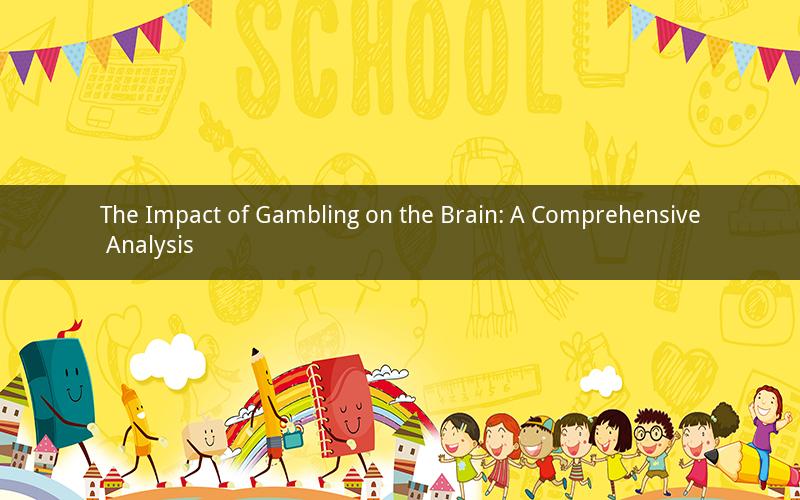
Introduction:
Gambling, an activity that involves betting money or valuable items on an uncertain event, has been a part of human culture for centuries. However, the rise of online gambling and the increasing accessibility of gambling platforms have sparked concerns about its potential impact on the brain. This article aims to delve into the effects of gambling on the brain, exploring the scientific research and theories surrounding this topic.
1. The Brain's Reward System and Gambling:
One of the primary reasons why gambling is addictive is its ability to stimulate the brain's reward system. When a person wins a bet, the brain releases dopamine, a neurotransmitter associated with pleasure and reward. This release of dopamine creates a sense of euphoria and reinforces the desire to continue gambling. Over time, this repetitive stimulation can lead to changes in the brain's reward system, making it more sensitive to rewards associated with gambling.
2. Dopamine and the Brain's Reward Circuit:
The brain's reward circuit involves several key areas, including the nucleus accumbens, prefrontal cortex, and ventral tegmental area. These areas work together to regulate reward processing and decision-making. When a person engages in gambling, the brain's reward circuit becomes highly activated, leading to increased dopamine release. This activation can result in changes to the brain's structure and function, potentially leading to addiction.
3. The Role of the Prefrontal Cortex:
The prefrontal cortex, responsible for decision-making, impulse control, and planning, plays a crucial role in gambling addiction. When a person is exposed to gambling activities, the prefrontal cortex becomes less active, making it harder to resist the urge to continue gambling. This decreased activity can lead to impulsive behavior and a disregard for the potential negative consequences of gambling.
4. Changes in Brain Structure and Function:
Research has shown that long-term gambling can lead to structural and functional changes in the brain. For example, studies have found that chronic gamblers may have smaller volumes in certain brain regions, such as the nucleus accumbens and the prefrontal cortex. These changes can contribute to the development of gambling addiction and make it more difficult for individuals to quit.
5. The Impact on Memory and Cognition:
Gambling can also have a negative impact on memory and cognitive function. Studies have shown that individuals with gambling addiction may experience difficulties with attention, memory, and problem-solving. These cognitive impairments can further exacerbate the negative consequences of gambling and make it harder for individuals to break the cycle of addiction.
6. Treatment and Prevention:
Understanding the impact of gambling on the brain can help in the development of effective treatment and prevention strategies. Cognitive-behavioral therapy (CBT) has been shown to be effective in treating gambling addiction by helping individuals develop healthier coping mechanisms and improve their decision-making skills. Additionally, public awareness campaigns and stricter regulations on gambling platforms can help prevent the development of gambling addiction.
FAQs:
1. How can I tell if someone has a gambling addiction?
If someone is preoccupied with gambling, experiences financial difficulties due to gambling, and has a strong urge to keep gambling despite negative consequences, they may have a gambling addiction.
2. Can gambling addiction be treated?
Yes, gambling addiction can be treated. Cognitive-behavioral therapy (CBT) is one of the most effective treatments, helping individuals develop healthier coping mechanisms and improve their decision-making skills.
3. Can gambling addiction lead to mental health issues?
Yes, gambling addiction can lead to various mental health issues, such as depression, anxiety, and substance abuse disorders.
4. Are there any genetic factors that contribute to gambling addiction?
Yes, research suggests that there may be a genetic component to gambling addiction, with certain individuals being more susceptible to developing the disorder.
5. Can online gambling be more addictive than traditional gambling?
Online gambling can be more addictive due to its accessibility, convenience, and the potential for high-speed and high-stakes betting. The anonymity and social isolation associated with online gambling can also contribute to the development of addiction.